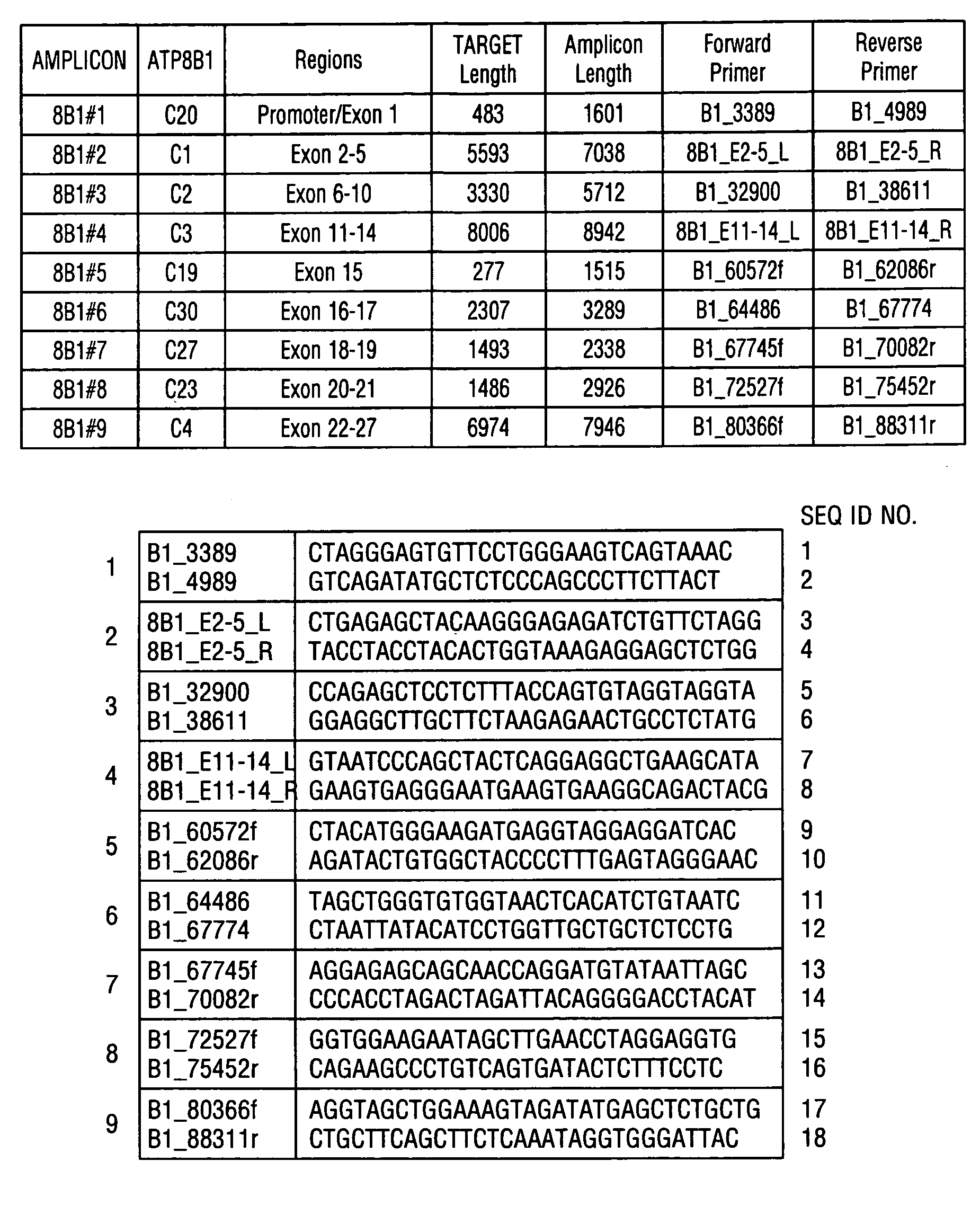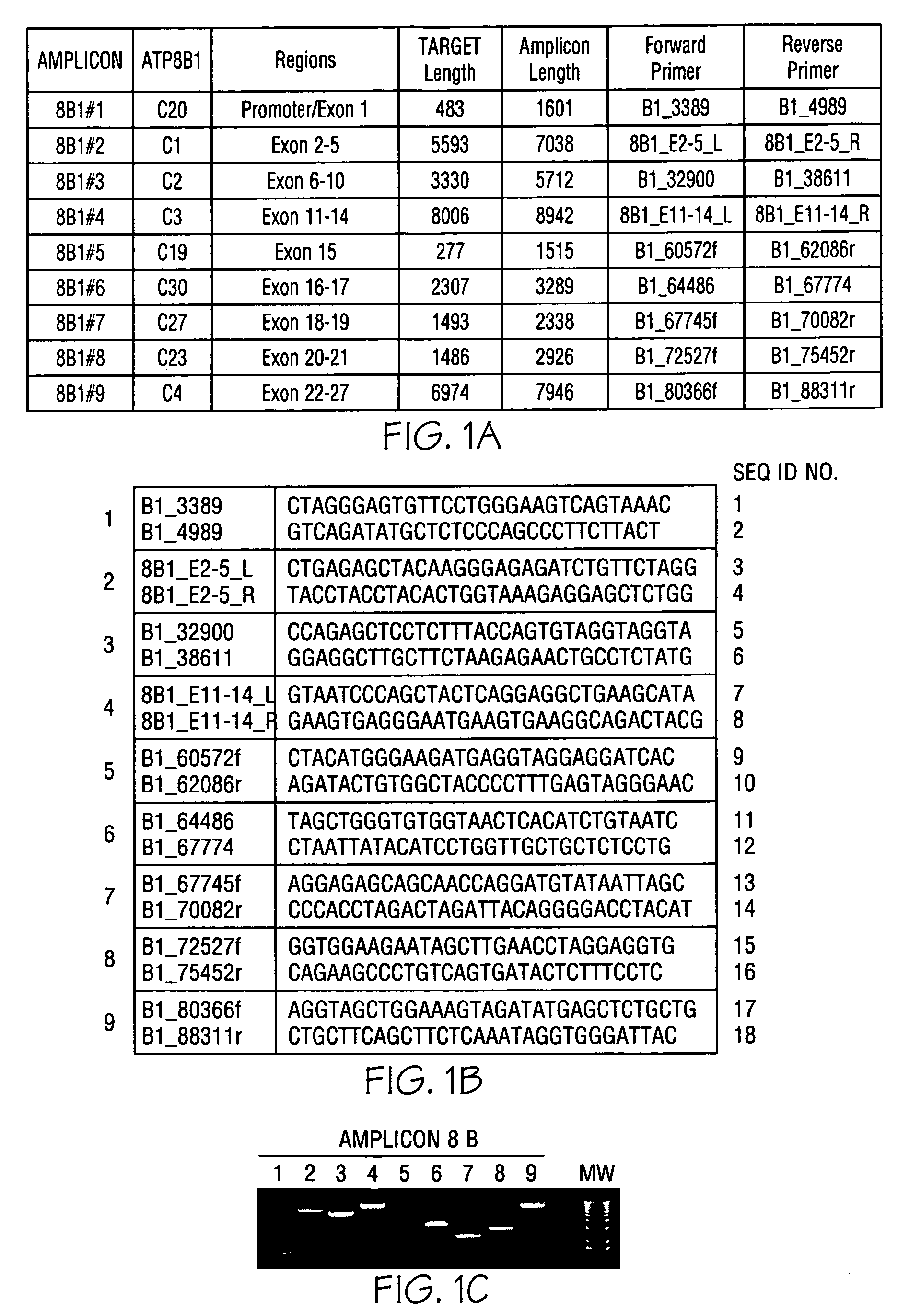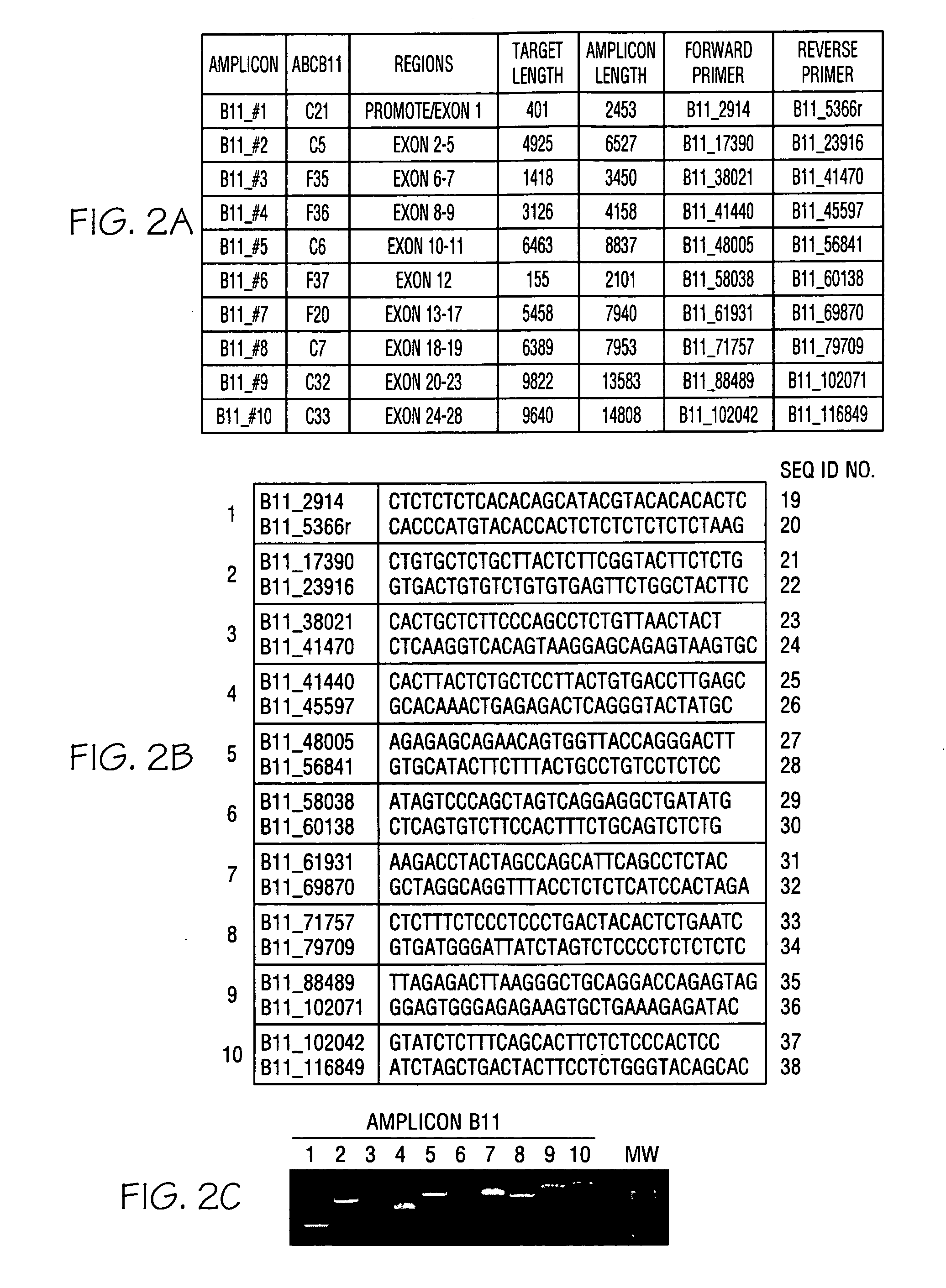Classification and diagnosis of the molecular basis of cholestasis
a molecular basis and cholestasis technology, applied in the field of gene diagnostic assays for cholestasis related syndromes, can solve the problems of impaired use of mutation detection as a diagnostic criterion, difficult clinical definition of diseases,
- Summary
- Abstract
- Description
- Claims
- Application Information
AI Technical Summary
Benefits of technology
Problems solved by technology
Method used
Image
Examples
example 1
Enzymatic Amplification of Multiple Regions of Cholestasis Related Genes
[0060]Genomic DNA was purified from whole blood samples obtained from subjects exhibiting jaundice. An enzymatic amplification master mix was prepared following the polymerase manufacturer's standard protocol. The master mix was aliquoted into thermocycler tubes. The isolated nucleic acid molecules of the invention were diluted and added in pairs to each tube. The purified genomic DNA was diluted and added into each tube. The reaction mixtures were placed in a thermocycler and subjected to incubations suitable for long-range PCR. Aliquots of each reaction mixture were loaded on agarose gels and subjected to electrophoresis. Typical results obtained with oligonucleotide pairs specific to ATP8B1 are shown in FIG. 1, Panel C; ABCB11 in FIG. 2, Panel C; ABCB4 in FIG. 3, Panel C; JAG1 in FIG. 4, Panel C; and SERPINA-1 in FIG. 5, Panel C.
example 2
Resequencing Microarray Analysis
[0061]Amplified DNA obtained as described above was utilized in resequencing microarray analysis with a cholestasis related gene resequencing microarray of the invention. Microarray analysis was performed according to the manufacturer's recommended protocol.
PUM
| Property | Measurement | Unit |
|---|---|---|
| temperature | aaaaa | aaaaa |
| temperature | aaaaa | aaaaa |
| pH | aaaaa | aaaaa |
Abstract
Description
Claims
Application Information
 Login to View More
Login to View More - R&D
- Intellectual Property
- Life Sciences
- Materials
- Tech Scout
- Unparalleled Data Quality
- Higher Quality Content
- 60% Fewer Hallucinations
Browse by: Latest US Patents, China's latest patents, Technical Efficacy Thesaurus, Application Domain, Technology Topic, Popular Technical Reports.
© 2025 PatSnap. All rights reserved.Legal|Privacy policy|Modern Slavery Act Transparency Statement|Sitemap|About US| Contact US: help@patsnap.com



